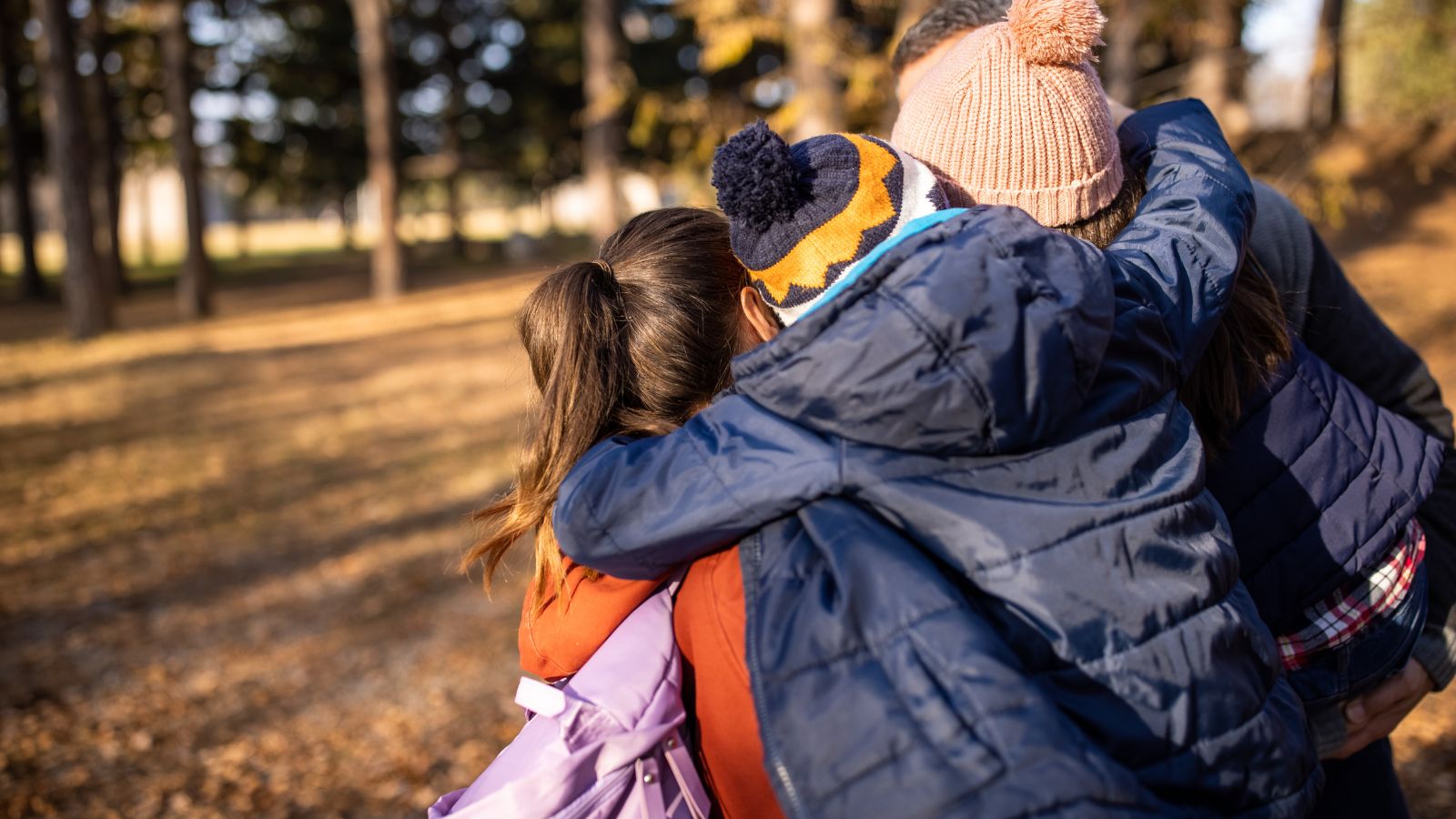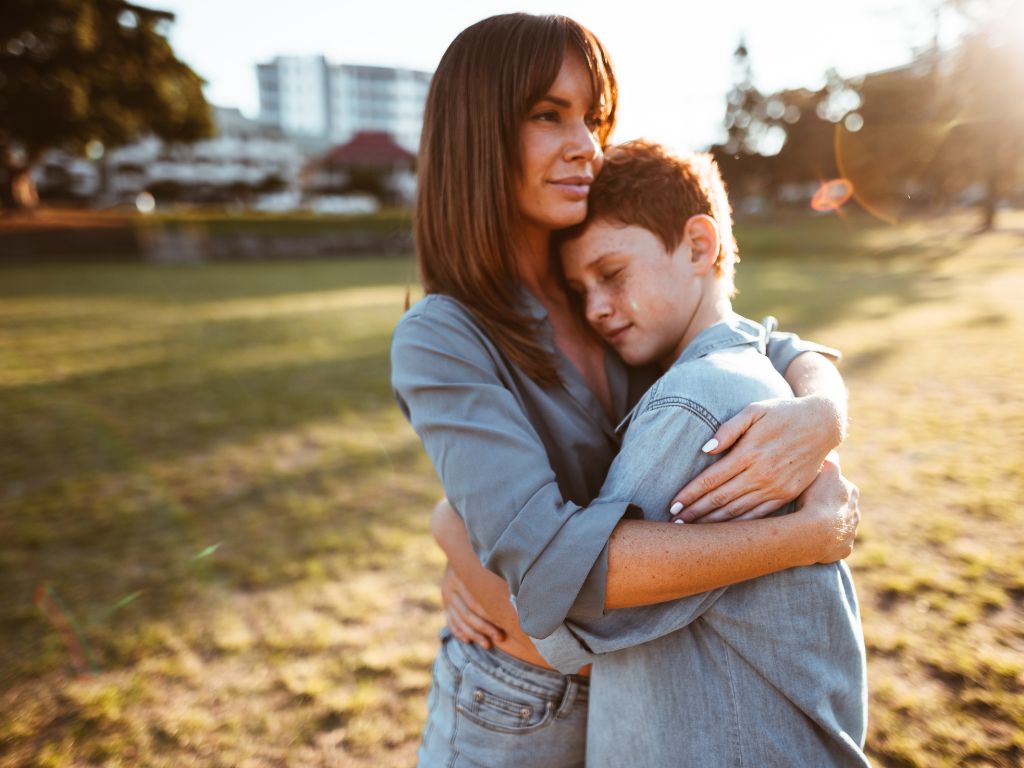Child Welfare FAQs Regarding Family Detention or Deportation

The following information is not legal advice or guidance. Concerned individuals should
consult an experienced and trusted immigration law attorney about your situation to verify
that what you are doing will be honored by authorities in your state.
What is the state’s role in overseeing child welfare in Colorado?
The child welfare system for the Colorado Department of Human Services (CDHS) oversees child welfare practices, policies and funding. Each of Colorado’s 64 counties implements child welfare practices and delivers direct services to children, youth and families in their counties.
What should I do to protect my children if I am undocumented?
Make a family protection plan and share it with your children and trusted adults. For family protection plan templates see the appendix. Here are some steps you can take:
- If your child was born in the United States, ensure documentation is accessible, such as a valid U.S. passport or birth certificate
- Consider naming a power of attorney for temporary custody
- Review emergency contact numbers, practice different scenarios and check-in procedures with children, family members and trusted adults
Should an arrest or deportation occur, families can access their rights to make any necessary calls to family, friends, and/or attorneys to help ensure adequate care for their children.
What is a family protection plan?
A family protection plan (also called family emergency preparedness plan, family preparedness plan, or family communication plan) is a plan that explains what actions work to ensure every family member, parent/guardian, and trusted adult knows what to do in case of an emergency.
This plan should have:
- Information about the child, including name, age, health condition, health insurance, school/childcare contact information
- Contact information of adults identified as possible caregivers by the family, including names, address, phone number
- Information on immigration attorneys, consulates, community groups
- Information of other family members or friends who live in the United States
- Information of family members or friends who live outside of the United States
- Copies of important documents, including birth certificates, passports, immigration papers, and medical records
- If possible and appropriate, a power of attorney for temporary custody
The parent or caregiver should explain the plan to their children and any identified trusted adults, so they are prepared to support and/or adhere to the plan.
A family protection plan does not necessarily have to be in English. However, having it in English and Spanish can help prevent misunderstandings and the need for a translator/interpreter to understand a parent/caregiver’s directions and intentions.
See the below for family protection plan template resources.
What if I do not have family in the area to care for my children in case of an emergency? Can they go live with our friends? (How do
counties define kin?)
Yes, if you do not have family in the area and experience an emergency, you can designate friends to provide care for your child(ren). Preparing ahead of time to meet children’s unique needs at times of emergency is important and a family protection plan (see Q&A 3.) allows you to designate who should care for your child if you are unavailable. In Colorado, we refer to these family members and other trusted adults as “kin” or as a “kinship caregiver.”
Kinship caregivers are relatives, friends, neighbors and other people with a significant relationship to the child, youth or family.
Families should talk with trusted adults (friends, community members, teachers, coaches) and ask if they can provide temporary care for their children. Once a trusted adult agrees to support the family, their name should be included in the family protection plan and, if possible or at the appropriate time, a parent can appoint them as a short-term guardian through a power of attorney.
Kinship care is an arrangement in which children under 18 years of age who are unable to live with their parents are placed in the care of relatives, close family friends, or other people important in their lives instead of being placed in traditional foster care or group homes. In kinship care, the child or youth is legally placed with someone with an existing relationship with the child, such as a relative, godparent, coach, teacher, or neighbor.
If a single parent or both parents of a child(ren) are detained or
deported, what will happen to their child(ren)?
County Departments of Human/Social Services (“a county”) will try to work with
immigration enforcement officials (ICE) to contact the detained parents to make a plan.
If the family doesn’t have a protection plan and there are no identified caregivers, a school or
others will make a referral to the county.
When a referral is made, the county will first complete an assessment to determine if there has
been abuse/neglect and then:
- If there are concerns for abuse/neglect, the county department may find other family members and/or friends willing to temporarily or permanently care for the child(ren) or youth or,
- Identify appropriate foster care or out-of-home placement options, or,
- Work towards reunification with the parents who have been deported to their countries. To achieve this, counties will work with consulates and/or social service agencies to help find deported parent(s) and determine if the family can be reunited in their home country.
I know children who came home from school, and their parents
never came home. What should I do?
If you are a teacher or administrator at the child’s school or childcare, you can contact the child’s emergency contacts provided by the family during enrollment. If there is no identified trusted adult or emergency contact, concerned community members can call the Colorado Child Abuse and Neglect Hotline at 844-CO-4-Kids (844-264-5437).
If you are a neighbor, friend, community member you can ask the child if they have a family member or trusted family friend you can contact for them. If the child is unable to provide an emergency contact’s information, or you are unable to reach their emergency contact, please stay with the child and call the Colorado Child Abuse and Neglect Hotline at 844-CO4-Kids (844-264-5437).
I have a family member or friend who was detained, and they were
not able to make a family protection plan. What will happen to their
children? Can they go live with family or kin?
While in ICE custody, the parent or caregiver can request to call a family member, attorney or trusted adult and arrange proper care for their children.
What can teachers/coaches/childcare providers do if they want to
help a family in need of a kin care placement?
Kin or relatives are almost always the first resource that a county child welfare caseworker will explore if a child needs a safe living environment, even temporarily. People close to a family including teachers, coaches, childcare providers, advocates, religious leaders, or other family support persons who are not necessarily related by blood but have a strong, trusted relationship with a child, may also be considered to provide temporary “kinship” care, and should communicate their interest in assisting a responding county caseworker. Also, if a family does not have an adequate family protection plan, please encourage or assist them in developing a plan.
Can teachers be listed as an emergency contact at a school if
parents are not available or have been detained?
Teachers who have a kin-like relationship with a child in need of placement can contact the county’s foster care team if they would like to be considered kinship caregivers.
It’s essential to remember that families often have a family protection plan that indicates who a parent(s) would like to care for their children if they are detained or deported, eliminating the need for child welfare involvement. Teachers can work directly with the families to offer and be added to a family protection plan.
Will county child welfare staff follow a family protection plan?
Yes, when a family creates a protection plan, and there are no allegations of child abuse and neglect, local county human services departments should contact the caregivers identified in the family protection plan if their assistance is needed. The local county department will maintain physical supervision of the child(ren) in the county office until the identified caregiver arrives. The individuals identified in the family protection plan do not have to
undergo a background check.
What if my children are not involved in child welfare services, but
my kinship provider needs support, can they access any resources?
If a county’s child welfare program is not involved with a child, and the kinship caregiver needs financial assistance in caring for a child, they can apply for Child-Only TANF through the Colorado PEAK website. (Child-only TANF support is only available to children that are US citizens.
Can I bring my children with me if I am deported?
If a family is impacted by deportation, the State of Colorado does not prohibit parents from taking their children with them or arranging for their children to stay in the United States with an identified family member or legal guardian.
However, ICE may have policies or practices that may not easily allow for your children to travel with you back to your home country.
Can I visit my kids or request video calls with my kids if I am detained?
The state has no authority over Immigration and Customs Enforcement (ICE). ICE will determine if you are able to have contact with your children if you are detained.
However, if your children are in county custody, parents or guardians are encouraged to contact their caseworker. The caseworker and the family will develop a Family Time plan that includes in-person and virtual contact between parents, children, youth, siblings and extended family members as available. Suppose an impacted family has a child(ren)/youth who is in temporary kinship care with a family member or friend. In that case, the caseworker can support coordinating visits both in person and virtually.
If my children are taken into county custody, how can I stay in touch with them?
If a parent(s) is detained or deported, and children are taken into county custody, families can contact the caseworker or their county human services department for support.
Caseworkers can help families make a communication plan. To find child welfare offices in
Colorado, visit the Contact Your County Human Services Department website for county specific information.
What are my rights as a parent if my children are placed in county custody?
This Google folder has the Notice of Rights and Remedies for families in Spanish, Chinese, Russian, and Vietnamese languages.
What are my rights as a parent if my child has American Indian,
Alaska Native, or Native American heritage?
If the child has any American Indian/Alaska Native or Native American heritage, it is important to tell the county caseworker. The Indian Child Welfare Act (ICWA) is a federal law which requires states and counties to complete active efforts to keep eligible children in the home and may or may not include the Federally Recognized Tribe to be a part of the case. You can learn more in the ICWA Website.
Are there resources to help my family or kin take care of my children for more than a day or two through child welfare involvement?
State Law gives kinship caregivers some financial support when there is an open child welfare case. Additionally, emergency financial assistance can be provided and includes goods needed for the child’s basic care, including beds, clothing, and transportation costs and limited rental or housing assistance when there is a child welfare concern.
Families can learn more about these services by contacting their local county department of human services or visiting the CO4Kids kinship care website.
What if no family or kin can be identified to provide care for my children?
County departments of human/social services (“a county”) will try to work with immigration enforcement officials to contact the detained parents to make a plan. A county Department of Human/Social Services must locate the least restrictive placement for children when a parent or kin is unavailable or when children cannot be safely returned to a parent or caregiver. This would include kin as identified by the parent or youth. County Departments of Human/Social Services are required to complete background checks. These background checks are performed to ensure child safety when a county is making the placement decision and can be performed regardless of documentation status.
If the family doesn’t have a protection plan and there is no identified kin, the child could be considered “abandoned.” This could lead to a report by an agency of concerns of abuse and/or neglect.
When a report is made, the county will:
- Complete an assessment to determine if there has been abuse/neglect
- If there are concerns for abuse/neglect, the county department may find other family members and/or friends willing to temporarily or permanently care for the child(ren) or youth or,
- Identify appropriate foster care or out-of-home placement options, or,
- Work towards reunification with the parents who have been deported to their countries. To achieve this, a county will work with consulates and/or social service agencies to help find deported parent(s) and determine if the family can be reunited in their home country.
How can I be reunified with my children if I am deported?
Families in this situation should contact an attorney.
If there is no power of attorney and the county has opened a child welfare case, a county will work towards reunification. They will work with consulates and/or human/social service agencies to help find deported parent(s) and determine if the parent(s) can be reunified with their children in their home country.
What are the challenges of trying to regain custody if my children enter the foster system?
If a child enters the foster care system, then a Dependency and Neglect case will be filed with the local county court within 72 hours. A court will need to decide if the child is in need of protection to stay in the foster care system. If you are unable to care for your child, or your child has been removed from your care, you may qualify to receive court-appointed counsel to advocate on your behalf throughout the case.
If a child has been or is being removed from your home under the Colorado Revised Statute 19-3-401 or 19-3-405(2)(a), OR a court entered an emergency protective order regarding your child(ren) pursuant to Colorado Revised Statute 19-3-405(2)(b), see the notice of rights and remedies or families may contact the Office of Respondent Parent’s Counsel.
Will my children be adopted?
Children and parents involved in Dependency and Neglect proceedings have a right to a Family Services Plan and representation. If they cannot afford an attorney, they may be assigned on by the court if they qualify. Courts evaluate many different factors and almost always attempt to reunify children with their parents prior to considering termination of parental rights and adoption. Colorado family courts do not terminate parental rights as soon as the parent or caregiver is deported. The court will determine if a child is eligible for adoption, and this is only after the court decides that after resources have been provided, the parent cannot provide adequate care for their child and that reasonable efforts have been made to help the parent.
Will a county ensure that children are provided with the same
resources/services (school, religious, extra-curricular activities)?
Yes, a county works diligently to keep children in their same communities whenever possible if it’s in the child’s best interest. This includes having children remain in their same schools and be involved in their same activities when possible. It is also the value of child welfare in Colorado to honor all children’s cultural norms and values in their out-of-home placement, including staying with family whenever possible.
Resources
Family Protection Plan
- Illuminate Colorado
- Justice and Mercy Legal Aid Center
- Immigrant Legal Resource Center
- Colorado Immigrant Rights Coalition
Consulate Information
Guatemala Consulate
- Support Guide for Guatemalan Families
- Emergency 24/7 WhatsApp Number: +1 (303) 502-7876
- Business (8:00 am to 5:00 pm) WhatsApp Number: +1 (303) 629-9212
Mexico Consulate
- Support Guide for Mexican Families
- Emergency Phone Number: +1 (303) 667-8567
- Information Center and Assistance for Mexican Citizens: +1 (520) 623-7874
Peru Consulate
- Guide for Peruvians who live in the United States
- Address: 6795 East Tennessee Avenue. Suite 550. Denver, CO 80224
- WhatsApp Emergency Phone: +1 (303) 748-3063
- Email address: conperdenver@consuladoperu.net
Honduras Consulate
- Phone Number: +1(470) 751-9077
- WhatsApp Number: +504 8833-8635
- In case of arrest, send an e-mail to hondurasconsuladoaurora@gmail.com
El Salvador Consulate
- WhatsApp Number: +503 7070-1071
- Virtual Consulate: 1-888-301-1130
Ecuador Consulate
- Ecuador Consulate in Pheonix Website
- Phone: +1(602) 535-5567
- Emergency WhatsApp Number: +1 (737) 309-7330
Other Consulates
Office of Respondent Parents’ Counsel (ORPC)
ORPC provides legal services to parents whose children may be going into county custody. If you are a parent or caregiver facing this risk, fill out the referral form. An ORPC advocate will reach out to you within 48 hours.
CO4Kids Resources
This guide provides a list of resources available for families who are experiencing difficulties with housing, mental health, physical health, child abuse and neglect and domestic abuse.
More Posts







